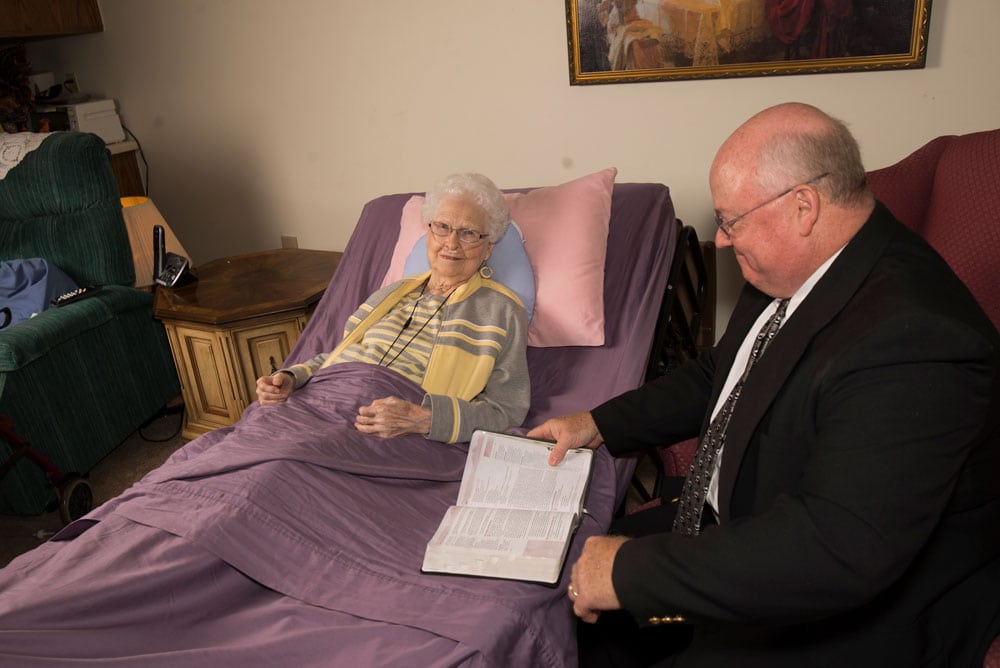Being a hospice care worker can be a gratifying career, but it’s not for everyone. Hospice care workers need special skills to be truly effective in the role. Some can be taught while others’ natural talents are given at birth.
In today’s blog from Phoenix Home Care & Hospice, we will outline 10 top traits needed to be a hospice care worker.
Related Post: Home Health Nursing Skills
1. Compassion
It may sound easier than it is. Merriam Webster defines compassion as a “sympathetic consciousness of others’ distress together with a desire to alleviate it.”
While we all may hold some level of compassion, healthcare professionals and those caring for the sick require a higher level of sympathy. Those who are dying or in extreme pain and discomfort may exhibit fear, or be difficult or demanding. Their families may be exhibiting similar tendencies.
Understanding their distress and using compassion can quell fears and create a more calming environment.
2. Communication
As a hospice care worker, you will need to effectively communicate with multiple people, including the patient, their family or caregivers, your team and direct report, and any doctors or nurses associated with your patient. Having a clear understanding of the situation as it changes, and communicating that in an appropriate timeframe and manner, will keep everyone updated. This will offer the patient better care while alleviating misunderstandings and frustrations.
3. Observation Skills
Being observant is one of the most critical skills to possess for your career. As changes occur in your patient’s health, it’s important to notice small changes in their behavior, overall appearance, speech, and eating habits. This can be a clue to any other issues going on. Reporting these changes to the rest of the team can help medicate them and keep them comfortable.
4. Cultural Awareness
As more people move from one country or region to another, it’s essential to understand different cultures and customs. These can play a significant role to your patient and, therefore, should be respected.
5. Emotional & Physical Strength
There’s a great deal of strength needed when caring for those terminally ill. As you care for them, you may be cleaning and moving furniture, carrying groceries, and even the patient themselves. Shifts can extend into many hours without rest. As your care for the patient progresses, you may attach an emotional bond to them. It’s essential to be physically as well as emotionally strong throughout the care.
6. Patience
Caring for sick people can require a great deal of patience, depending upon their needs and the severity of the situation. Learning to remain calm and fulfill their needs and requests with patience will not only give them a better experience, but it will keep your anxiety and frustrations low.
7. Organization
Being an organized worker is crucial for this position as you manage a schedule, medications, multiple clients while making sure you have everything you need.
You may have multiple clients to see in one day. It would help if you remembered exactly what each of their needs is and have the tools ready to record vital information.
Related Post: Why You Need Fantastic Organizational Skills in Home Health Nursing
8. Interpersonal Skills
Knowing how to communicate with others and handle stressful situations is completely necessary for this role. Interpersonal skills include having a strong emotional intelligence as well as learning how to comfort and relate to those you are caring for and their families. Communication, patience, observation, and compassion are all part of interpersonal skills. The stronger these skills are, the more successful you will be in your career.
9. Flexibility
There are no two days alike when it comes to caring for someone who is terminally ill. One day they may feel great. The next day, they are in extreme pain. You have to be agile in caring for someone, being able to change plans in a split second and react accordingly. This is where communication, patience, and compassion can play a role.
10. Initiative
Seeing something that needs to be done and doing it is an excellent example of initiative. When someone is in pain or experiencing a health issue, there may not be time to wait for a recommendation. Using your instincts and training to initiate best practices will keep the situation as under control as possible.
Hospice Care Workers From Phoenix Home Care
Phoenix Home Care & Hospice specializes in caring for clients at home, including those moved to hospice care following the guidance of a physician. Contact Phoenix Home Care online or call toll-free 1-888-830-2388 for more information on what we offer for you or your loved one.






